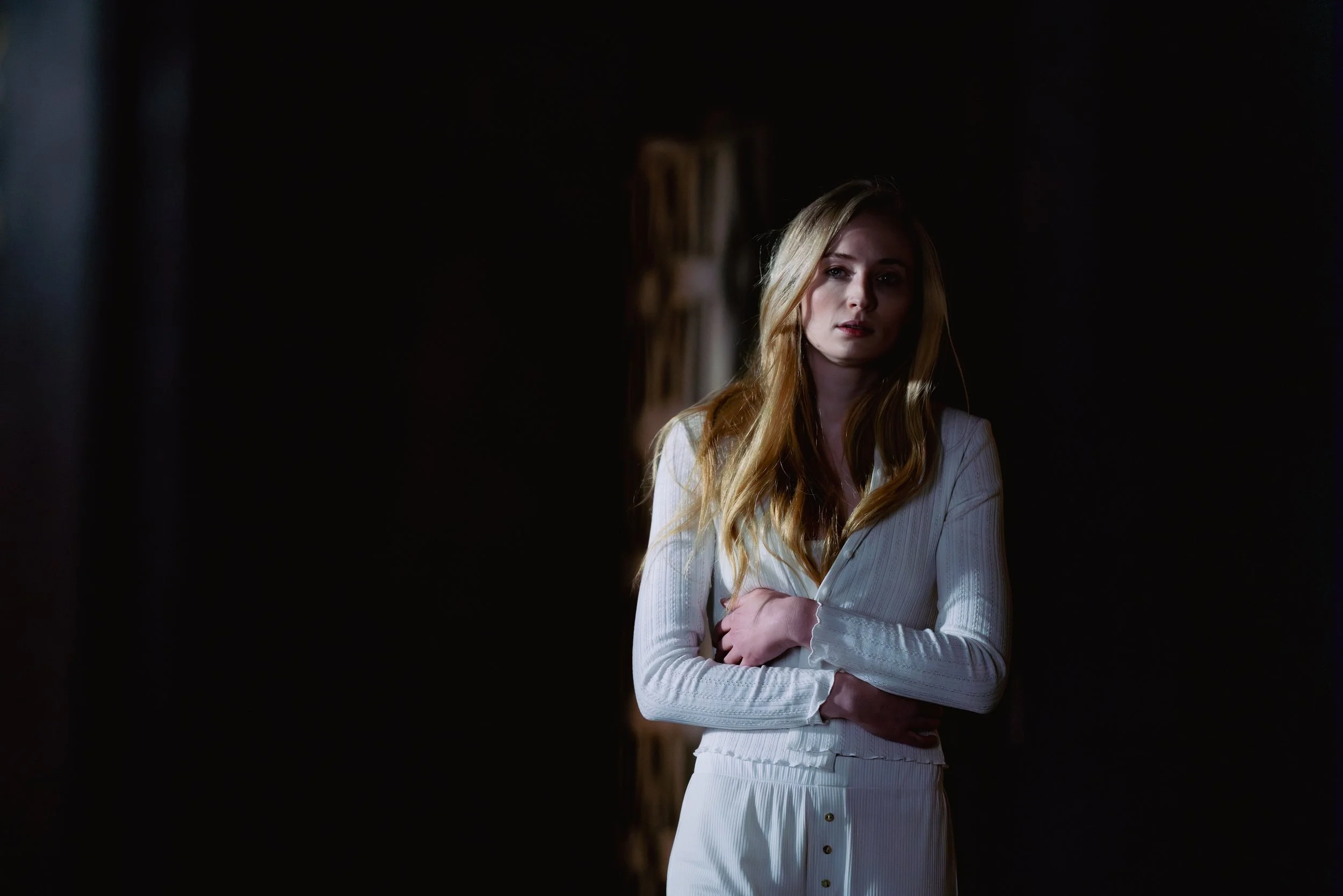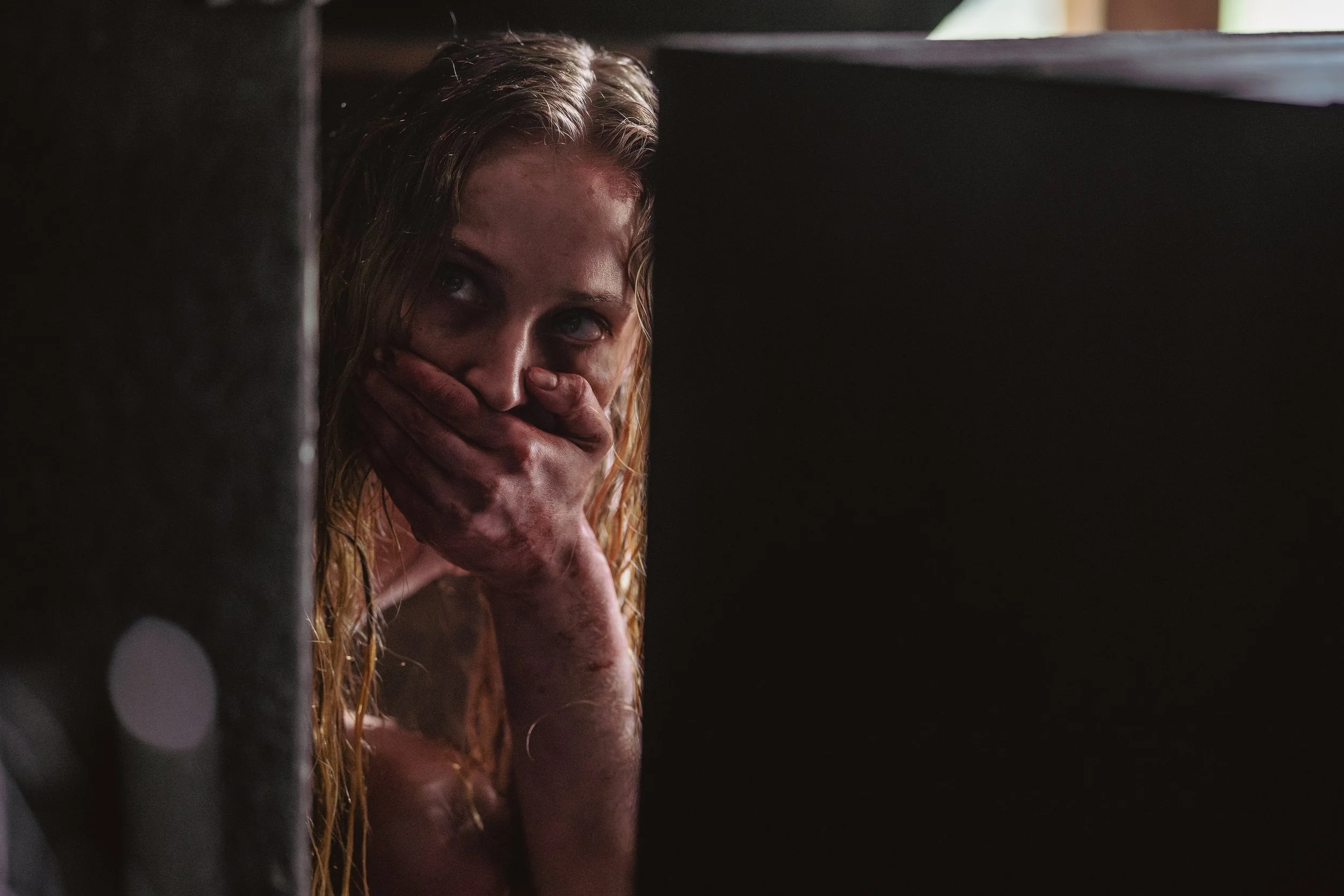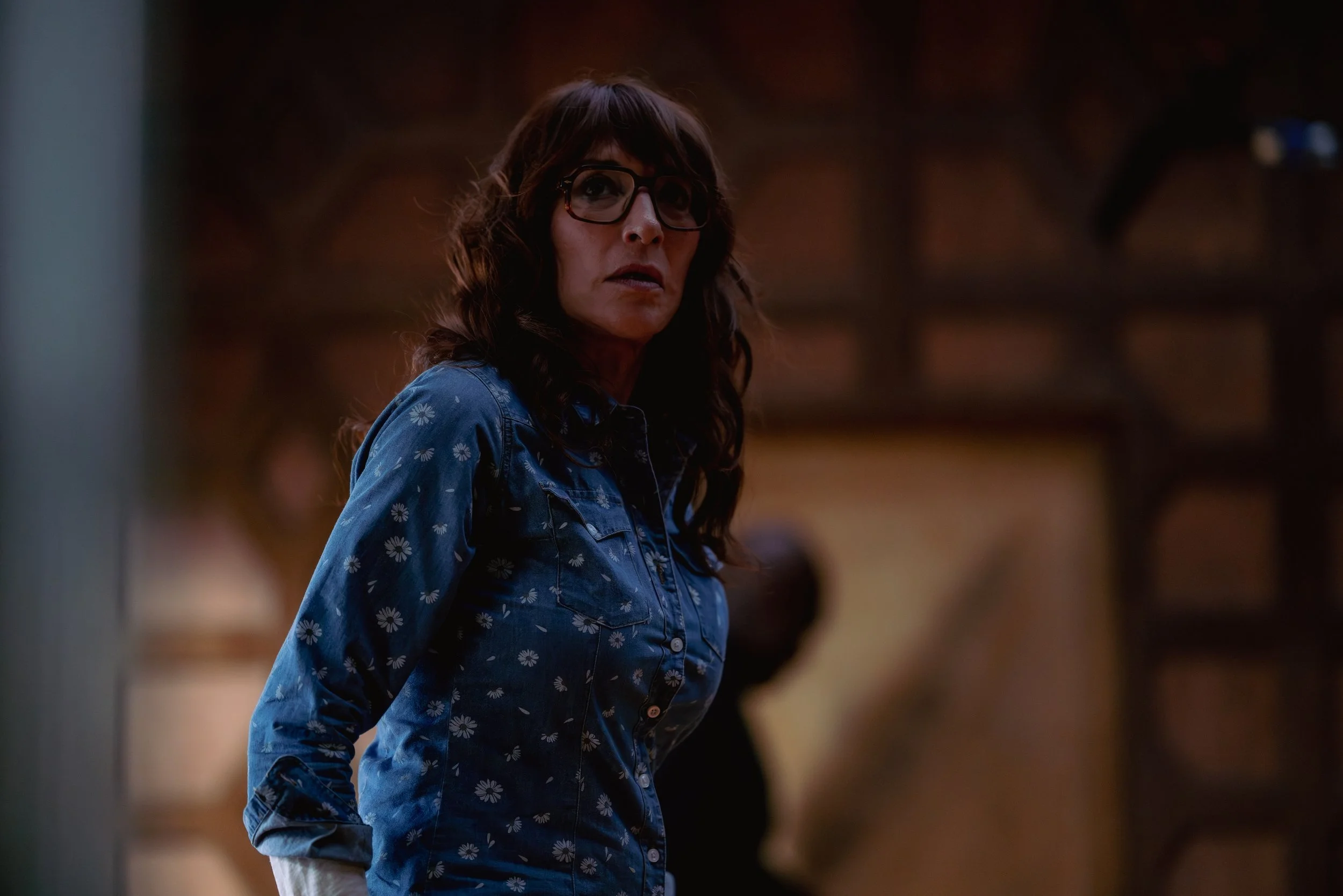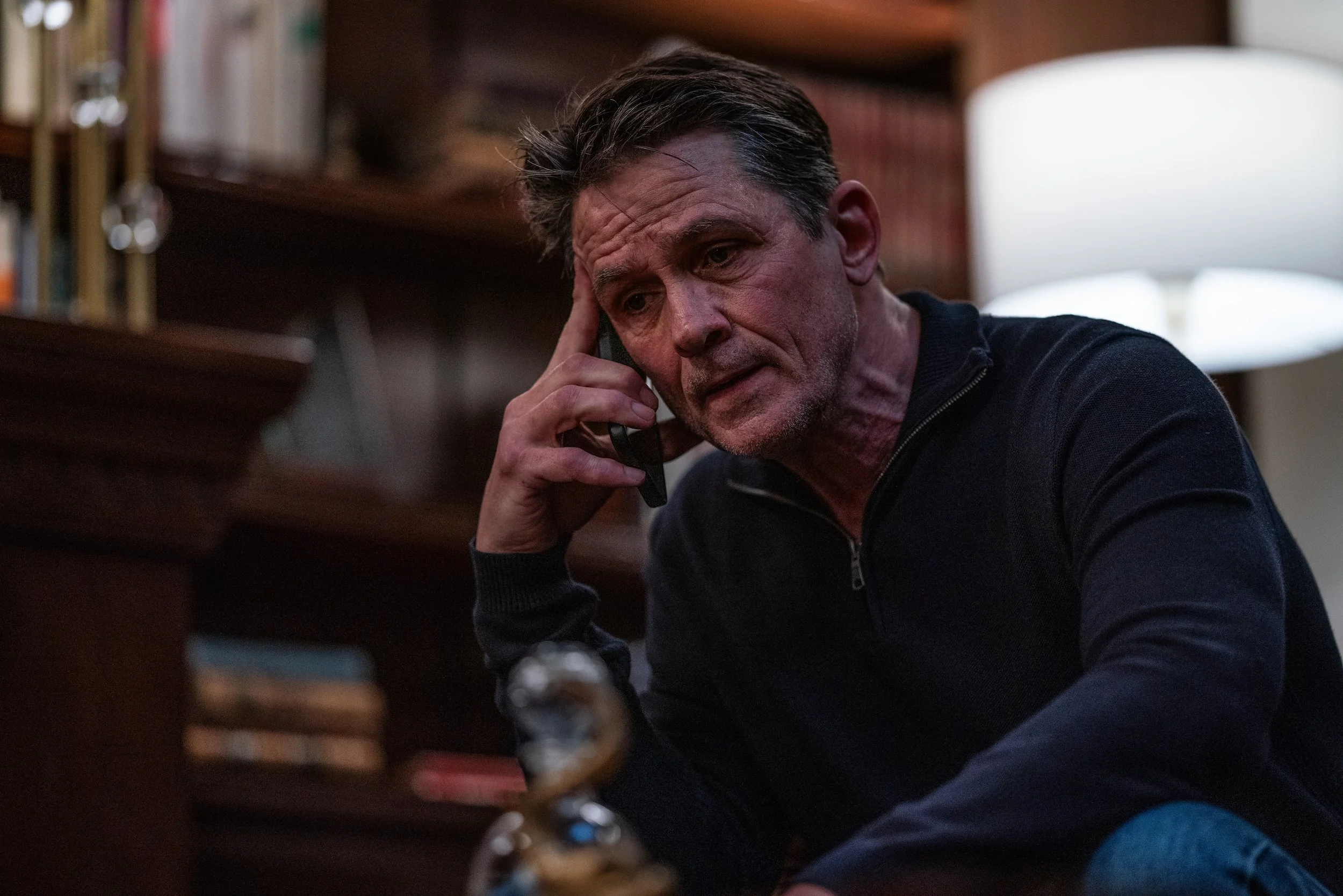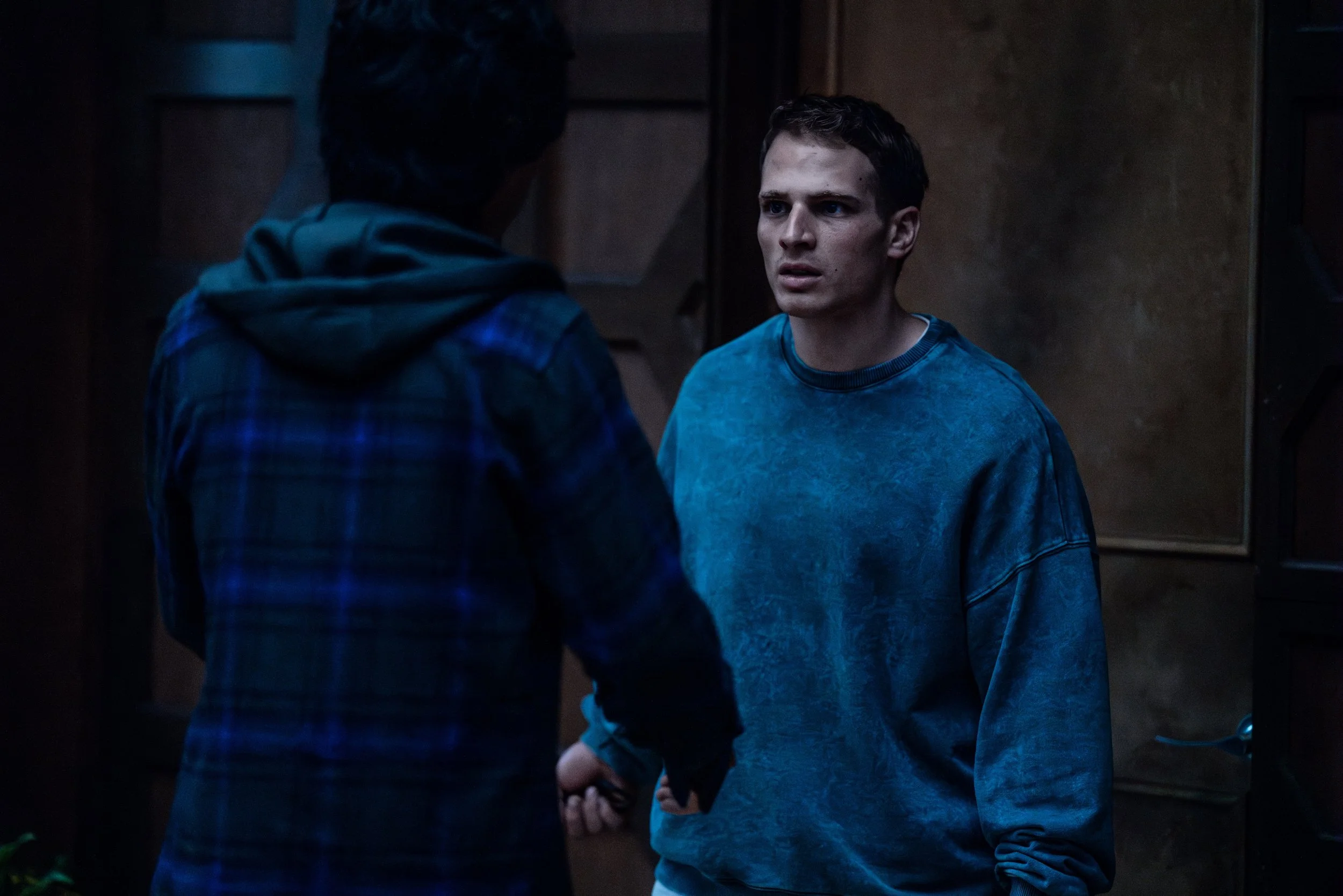In Trust, a taut psychological thriller directed by Carlson Young (The Blazing World), Sophie Turner trades dragons and mutants for something far grittier—a panic room, a hacked iCloud, and a pregnancy that raises more questions than stakes. Set in the rural outskirts of Redlands, California, the film aims for visceral tension and trauma survival but lands somewhere between earnest ambition and overwrought genre mashup.
Turner plays Lauren, a Hollywood starlet in hiding after a scandal leaves her life—and her trust—shattered. Hoping to escape the digital and personal chaos, she seeks refuge in a remote countryside home. But peace is short-lived. A series of strange coincidences and a robbery gone sideways force Lauren to survive in a setting that feels like Panic Room’s stinkier cousin: Panic Restroom.
The film has the scaffolding of something thrilling. Young’s direction occasionally taps into Lynchian discomfort, blending dread with bursts of surrealism. Unfortunately, the plot spirals into a cacophony of subplots, unclear motivations, and illogical turns. A central issue is narrative coherence—threads like Lauren’s hacked iCloud, the murky robbery, and a sinister showbiz subplot involving an inappropriate relationship between actors playing parent and child all feel like separate movies colliding without resolution.
The bathroom-set tension is drawn out to increasingly implausible extremes—especially when water slowly seeps in but somehow never floods fast enough to pose a real threat. The viewer can't help but question the physics of the space, much less the logic.
Turner gives a committed performance, though the physical demands of her role are often undercut by an unrealistic depiction of her pregnancy. She plays a woman on the brink, but the transformation from ingénue to "feral warrior" (as director Young describes it) never quite feels earned. Her character struggles with tools in a way that’s meant to be relatable but reads as ill-prepared rather than empowering.
Katey Sagal, as always, is a welcome presence—her gravitas adds weight to even the smallest scenes. Unfortunately, the same can’t be said for many of the supporting players. Several side characters are given far too much screen time despite delivering performances that feel phoned in or flat.
One of the most glaring issues is the film’s villain problem. There are simply too many antagonists, none of them particularly well-developed. This dilutes the threat and leaves the viewer unclear on who (or what) Lauren is truly fighting against. A more streamlined script with a central, focused menace could have elevated the stakes significantly.
That’s not to say Trust is without merit. There’s an underlying message about trauma, autonomy, and female agency that tries to surface throughout the film. Young and Turner clearly care about the material, and moments of tension do land. But the payoff feels muffled beneath a mess of misfires.
The film is competently shot, has some memorable moments, and might work well as an in-flight distraction. But it never fully trusts its own story long enough to dig deep, leaving the viewer with more confusion than catharsis.
Trust had potential—a solid cast, an ambitious director, and a timely theme—but a tangle of tonal inconsistencies and implausible plotting keep it from reaching the heights it aims for. Worth a casual watch, but don’t expect to feel deeply moved or particularly satisfied.
Jessie Hobson

